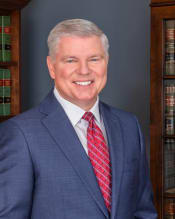Lawyer Ethics and Professional Conduct: Upholding the Integrity of the Legal Profession
Ethics and professional conduct are foundational pillars in the legal profession. As a lawyer, upholding the highest standards of ethics ensures that clients, the legal system, and society at large can rely on your integrity and dedication. Lawyer ethics cover a wide range of issues, from confidentiality and conflicts of interest to professional responsibilities and client relationships. This article explores the key principles of lawyer ethics and professional conduct, why they matter, and how they shape the legal field. Whether you’re an aspiring lawyer or someone interested in understanding the legal profession’s ethical framework, this guide will provide valuable insights into what it means to practice law with integrity.
Why Ethics Matter in the Legal Profession
Lawyers play a crucial role in shaping justice and maintaining societal order. Because they have access to confidential information and wield significant influence over legal outcomes, it’s essential that they adhere to strict ethical standards. Ethical violations can undermine public trust in the legal system, harm clients, and result in legal penalties for the lawyer involved. The American Bar Association (ABA) and other legal organizations provide detailed ethical guidelines that lawyers must follow to ensure fair treatment, honesty, and accountability. By upholding ethics, lawyers contribute to a just legal system, building trust with clients and the community.
Core Principles of Lawyer Ethics and Professional Conduct
Lawyers are bound by several core principles that define their ethical conduct. These principles guide their interactions with clients, courts, colleagues, and the public. Some of the most important principles include:
- Confidentiality: Lawyers must protect client confidentiality at all costs. The attorney-client privilege is one of the most sacred aspects of the profession, ensuring that clients can trust their lawyers with sensitive information without fear of it being disclosed without consent.
- Conflict of Interest: Lawyers must avoid situations where their personal interests or relationships could compromise their ability to represent a client effectively. Conflicts of interest must be disclosed to clients, and lawyers may need to withdraw from cases if conflicts arise.
- Competence: Lawyers must provide competent representation. This means they must have the legal knowledge, skill, and thoroughness necessary to handle cases. Competence also involves keeping up to date with changes in the law and seeking assistance from other professionals when required.
- Honesty and Integrity: Lawyers must act with integrity and honesty at all times, both in their professional work and in their interactions with clients, colleagues, and courts. Deceit, dishonesty, or fraud can lead to severe disciplinary actions.
- Duty of Loyalty: A lawyer must act in the best interests of their clients, advocating for their clients’ goals while adhering to ethical boundaries. The duty of loyalty requires that lawyers put aside personal interests and prioritize their clients’ well-being.
The Role of Professional Conduct in Building Client Trust
Professional conduct is closely tied to building and maintaining trust with clients. Clients need to feel confident that their lawyer is acting in their best interest and handling their legal matters with care and professionalism. Ethical lapses or unprofessional conduct can lead to a loss of trust, damage to the lawyer-client relationship, and even legal malpractice claims. For lawyers, maintaining a high standard of professional conduct means not only adhering to legal rules but also demonstrating respect, courtesy, and fairness in their dealings with clients. This is particularly important when dealing with sensitive issues such as family law, criminal defense, or personal injury cases, where clients are often vulnerable.
How Lawyers Navigate Ethical Dilemmas in Practice
Ethical dilemmas can arise at any stage in a lawyer’s career. Whether it’s dealing with confidential information, representing clients with opposing interests, or navigating a complex legal dispute, lawyers must make difficult decisions while staying within ethical boundaries. Many legal ethics committees and bar associations offer guidance to lawyers facing these dilemmas, and some law firms implement ethics training programs to ensure that their lawyers are equipped to handle complex situations. Lawyers may also seek advice from colleagues or mentors when they face ethical challenges. Adhering to a strong code of ethics and practicing sound professional judgment ensures that lawyers can navigate these dilemmas while maintaining their reputation and their clients’ trust.
The Consequences of Violating Lawyer Ethics and Professional Conduct
Violating lawyer ethics can have severe consequences for both the lawyer and their clients. Disciplinary actions for ethical violations can include suspension, disbarment, or fines, depending on the severity of the violation. Beyond legal penalties, unethical behavior can harm a lawyer’s reputation, damage client relationships, and reduce trust in their practice. In some cases, ethical violations may also result in malpractice claims, which could lead to further legal and financial penalties. To avoid these consequences, lawyers must consistently adhere to ethical guidelines and seek guidance when unsure about the right course of action.
FAQs About Lawyer Ethics and Professional Conduct
1. What are the most common ethical violations lawyers face?
Common violations include conflicts of interest, mishandling client funds, breaching confidentiality, providing incompetent representation, and engaging in dishonest conduct.
2. How do lawyers stay up to date with ethical standards?
Lawyers must stay informed about ethical guidelines through continuing legal education, bar association resources, and professional development programs designed to address current ethical concerns.
3. Can a lawyer represent someone they have a personal relationship with?
It depends on the situation. Lawyers must disclose any potential conflicts of interest and, if necessary, withdraw from representing the client if the personal relationship compromises their ability to act in the client’s best interest.
4. How does a lawyer handle client confidentiality?
A lawyer is obligated to protect all client information and only disclose it with the client’s consent or when legally required. Breaching confidentiality is one of the most serious ethical violations a lawyer can commit.
5. What should a client do if they believe their lawyer has violated ethical standards?
If a client suspects their lawyer has acted unethically, they should report the issue to the state bar association or relevant legal authority, who can investigate and take appropriate disciplinary action.


